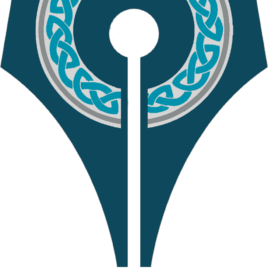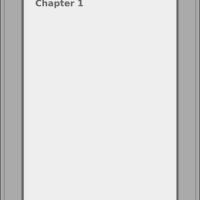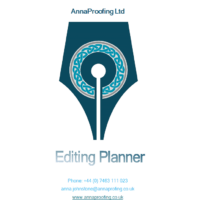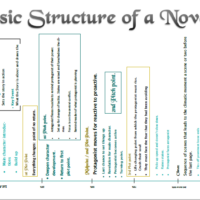
by Anna Johnstone | Jan 22, 2019 | Blog
Good morning!
Welcome to another Tuesday round-up. This week we have another great podcast from The Creative Penn (okay, total fangirl) discussing running a one-person business, the Kobo Writing Life talks about podcasting as content marketing., and the Writership podcast discusses scene and story resolutions. In articles, we have two very informative articles on shrinking author incomes, and another on corporate censorship and their unchecked power. I’ve not had time to check out videos for this week’s round-up, but hopefully, I’ll be able to gather a few links for next week.
Happy reading!
The Disastrous Decline in Author Incomes Isn’t Just Amazon’s Fault
The bookselling behemoth is making life harder for writers, but so is the public perception that art doesn’t need to be paid for.
Publisher's Weekly | Breaking Down Financial Woes for Writers
In an effort to gather as much information as possible about how much authors earned in 2017, the Authors Guild conducted its largest income survey ever last summer, reaching beyond the guild’s own members to include 14 other writing and publishing organizations. In all, the survey drew 5,067 responses from authors published by traditional publishers and from hybrid and self-published authors as well.
Corporate Censorship Is a Serious, and Mostly Invisible, Threat to Publishing
When state or civil authorities blacklist books, the act is correctly labeled censorship. But what is the word when corporations order their subsidiaries to snuff out information?
The Creative Penn | How To Be A Successful Company Of One With Paul Jarvis
What if you could scale your revenue without growing your expenses? What if you could make a living with your writing but still remain alone in your writing room? I discuss these questions and more today with Paul Jarvis.
In the intro, I talk about second-hand book sales [Dean Wesley Smith], how the death of poet Mary Oliver can help deepen our writing [listen to her on the On Being Podcast], why ‘sparking joy‘ is so important (referencing Marie Kondo on Netflix), plus the Kickstarter for Intellectual Property Tracking.
Kobo Writing Life | Ep 133 – Let’s Talk Podcasting with Amanda Cupido
n this week’s episode, Cristina sits down with author and podcast producer Amanda Cupido to talk about her book Let’s Talk Podcasting: The Essential Guide to Doing it Right. Amanda talks about how she got into podcasts, the difference between podcasts and older media such as radio, and she discusses the underrepresented voices in the podcasting community. Amanda also shares her tips for starting your own podcast and the most common roadblock that aspiring podcasters encounter.
Writership Podcast | Ep. 136: Resolutions
We all have some idea of what a resolution is, but what are these scene and story-enders meant to do? In this episode, I explore scene and story resolutions in the context of C. Gabriel Wright’s LBGTQ love story, “Someone.” The editorial mission encourages you to collect resolutions by reading and watching stories—and from your own life.
by | Dec 6, 2016 | Advice, Blog
Choosing an editor is not easy. The good ones have fees that could choke a horse. However, they are GOOD editors, so the fees they charge are worth it. If you can afford those fees. Unfortunately, many Indie authors just can’t break out that kind of cash.
Enter the rip off artists. They come in many levels of incompetence from authors who just want to make some side cash but don’t really know how to edit, to outright thieves who will take your money and give you nothing in return. Unfortunately, the latter kind thrives on the internet. We have all heard the stories of writers victimised by people calling themselves editors but didn’t even fix spelling mistakes, much less formatting, style, or continuity issues. As an editor myself, I am always learning and improving my craft this kind of thing makes me so angry – not least because it taints all freelance editors with the same reputation – but rest easy. This post is not an estate agent type post telling you to only trust me and ignore all those other editors. Finding the right editor for you is important.
So here are some guidelines for how to find the honest ones, pick an one, and dealing with them. Feel free to pipe up in the comments with any other suggestions I might have missed.
- Go with someone you know or who is recommended. If you can’t do that, the following steps can help.
- Do your research: collect reviews and referrals. How do they respond to complaints?
- Ask for a sample edit from the first chapter of your book, before any money changes hands. A new editor should be willing to do this to get your business, and most honest editors offer this as standard.
- Have someone you already trust and knows what they are doing, read the sample and let you know if they are good.
- Try to find one who will take a deposit up front and charges balance when the job is complete. If they demand the whole balance up front, steer clear. That said, I do expect full payment up front for small jobs (less than 10 pages =2500 words), but 50% of that is refundable if the client is not happy with my work
- Generally, I would advise you to avoid those who demand the full amount upfront. If their work is genuinely substandard –this is not the same as being unhappy about harsh feedback- do not pay the balance and demand your deposit back. New writers should be aware that it often takes several rounds of editing before your work is publishable.
- No editor can wave a magic wand and suddenly turn an unstructured first draft into a literary marvel in one go, and no reputable editor will claim to be able to. It depends entirely on the submitted work.
- Not all editors offer the same services or deal with the same type of text. You need to find out which genre they will work with and what levels they offer. I offer all four levels and am pretty much happy to edit whatever crosses my desk. Others may only deal with certain genres, or offer higher level editing. An honest editor will use your work to assess the level you are writing at and determine what the work needs. They will advise you what needs to be done, and if they are not able to offer the full scope of work required, you may find they will point you in the direction of someone who can.
- If you have ever dealt with an editor who has given you less than the quality of work promised for your money, you still have rights. A freelancer is subject to the same consumer laws as everyone else.
- You want to engage with someone who will cut deep and pick up the typos and mistakes. Remember, a good editor is on your side. A reader is not. The editor wants you to be able to publish your best work possible. You are not looking for ‘nice’. If they go too easy on you or appear to be in a rush to get to print, it can still count as bad editing. The reader will not be nice or give you the benefit of the doubt as it’s your first book. They will, at best, put your book down and never read your work again. At worst, they will leave a scathing review from wherever they bought it, and they will still never read your work again.
- A good editor will not point you at a publisher or insist that their services rely on you going with a particular press. If they do, they are probably taking a back-hander. I’m afraid you will have to do your homework for that too.














